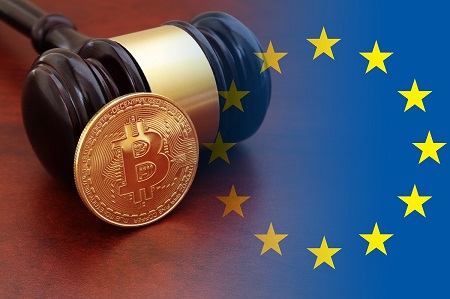Credit institution licensing is crucial for the public control and oversight of the European financial system. The public will have confidence in the financial system if they know that only authorized institutions are operating. At the same time, licensing shouldn’t stifle innovation in business, finance, or technology.
As the body in charge of banking authorizations in European banking supervision, the European Central Bank’s (ECB) job is to ensure that banks participate safely in the burgeoning crypto-asset markets while adhering to the abovementioned criteria. The ECB works closely with the national supervisors to ensure that all countries have the same strategy and high standards in this area.
Crypto asset activities and services in the EU are not currently governed by a unified regulatory framework. This will change with the completion of numerous legislative initiatives at the European and global levels that will establish a more comprehensive legal framework that will allow crypto activities to be freely conducted and also help banks manage the risks these activities pose.
The Council presidency within the EU recently secured a temporary agreement on the markets in crypto-assets (MiCA) proposal, which will subject crypto-assets to regulation.
Internationally, the Basel Committee on Banking Supervision is keeping an eye on banks’ exposure to cryptocurrency assets and will soon issue specific guidelines on how to address such exposures. In the meantime, national laws regarding crypto-assets vary significantly between countries.
Numerous banks have applied for permission to carry out the permitted operations in Germany that require a banking license.
In this context, the ECB is working to standardize the evaluation of license requests.
The ECB and the applicable national compliance authority apply the Capital Requirements Directive (CRD) criteria when evaluating licensing requests for crypto-asset activities and services, just like they would for any other licensing procedure. In doing so, the ECB considers the following:
Business Models
These refer to how the planned activity compares to the institution’s total activity and risk profile.
Internal Governance
This metric measures how well the institution’s rules and procedures assist in identifying and evaluating cryptoasset-specific risks.
Fit and Proper Evaluations
The same general fit and proper standards that apply in any licensing procedure, including IT proficiency, apply in this case. The level of expertise and experience in the crypto field is expected to align with the level of complexity or relevance of the crypto business.
Cryptoassets focus attention on specific types of risk, such as cyber and operational risks. The ECB is working hard to evaluate these.
These risks include the loss of cryptographic keys or the theft of login information, as well as the risks associated with using specialized technology or outsourcing contracts with third parties.
Also, the institution’s crypto-asset AML/CFT risk profile must be taken into account in its internal governance arrangements and processes. Crypto-assets are thought to be vulnerable to risks related to AML/CFT (anti-money laundering/countering the financing of terrorism).
In this case, the ECB relies on input from financial intelligence units and national anti-money laundering agencies. Since the Basel Committee on Banking Supervision is still working on ways to address the risks posed by crypto-assets and no specific fund criteria for liquidity and capital have been established, the ECB will work closely with national regulators to ensure that prudential evaluations are consistent across different national regimes.
The Way Forward
By the end of 2022, a horizontal analysis will be completed as a result of the work being done by the Single Supervisory Mechanism (SSM) on banks’ digital transformation, including the use of crypto technology. In any case, European bank regulators will keep a close eye on this fast-developing activity over the next few years.
If you would like to read more articles like this, visit DeFi Planet and follow us on Twitter, LinkedIn, Facebook, and Instagram.
“Take control of your crypto portfolio with MARKETS PRO, DeFi Planet’s suite of analytics tools.”





















